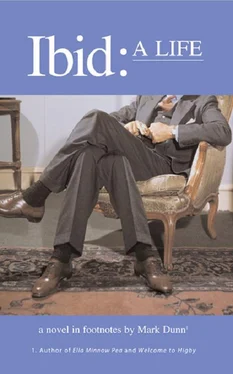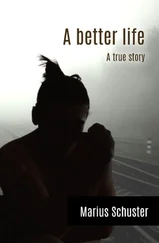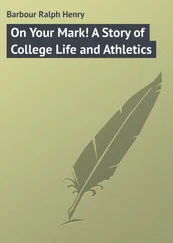6 HALLS OF IVY, CORRIDORS OF PROMISE
1. The first day at Devanter went smoothly.Devanter College and Seminary was founded in 1866 by three Confederate veterans who implemented an early Dixie version of the G.I. bill, offering free tuition, room and board to any veteran of Jefferson Davis’s army whose application for its eclectic program was accepted. The school was financed by a wealthy British eccentric, Lord Hallowell who owned vast acreage in England’s Lake District and whose large family fortune (acquired over a century of trade with southern planters) also financed full-scholarships at an art school in Leeds for students willing to paint only portraits of his estranged wife Tildy whose oft-reproduced image clutters the walls of that city’s “Museum of Tildy” to this day. Alwin Chambers, The Little Brown College in the Wildwood (Pittsburgh: Academe Press, 1992), 222-25.
Devanter offered courses in the sciences, business management, and the “Biblical arts.” Since Jonathan’s interests included both of the latter two disciplines, the small Tennessee college seemed the ideal choice.
2. Jonathan was assigned to Orville House.Ibid., 225-26, 301, 321-23. Lord Hallowell’s endowment carried several stipulations. First and foremost, Devanter College would be multi-racial, a place of study and fellowship for men of all races. Over the years, the college’s charter had been altered to allow only half-white mulattos, then quadroons, and finally octoroons. It was because Jonathan was admitted to the school one week late that he was placed in Orville House (regarded by most as the “dormitory of last resort”), which bunked the college’s twenty-two octoroons and its only Chinese student, Wing Lu, who, though there to study the recently developed quantum theory of German physicist Max Planck, found himself spending most of his non-classroom hours running the college laundry and grousing heavily over his lot.
A second stipulation: That students were to be of strong moral character. Smoking and drinking were strictly prohibited, although the young men were permitted a glass of watered sherry from time to time at the home of President and Mrs. Greaney when “some of the boys would be invited over for social and intellectual intercourse with the faculty.” Most importantly, the men were to visit nearby Chucking with “only the most extreme caution.” A wild and wooly railroad town, Chucking had twice as many saloons as churches. Any student found to be frequenting saloon, brothel, or dental parlor (where, it was understood, nitrous oxide parties sometimes degenerated into giggly orgies of lust and “just plain undignified tomfoolery”) would risk expulsion.
Ironically, it was here in Chucking that Jonathan met one of the enduring loves of his life, a pocked syphilitic former prostitute named Great Jane.
3. “She is the earth, the moon and the stars.”Though never allowing Jonathan to consummate their relationship, there is no doubt that Great Jane did permit him to hand her his heart. Nor is there any doubt that she felt the same. Such a love many have found inexplicable. Lucianne Flom in her study of love, romance and venereal disease, A Canker of the Heart (New York: Koppelman Publishers, 1990), offers the following stab: that Jonathan, being somewhat the social misfit himself, given his disability, identified with others who viewed the world through a slightly skewed lens, and it is entirely plausible that such empathy might in a special circumstance extend itself to romantic attachment. I believe that Jonathan’s feelings for Great Jane went much deeper than simple romantic attachment. To call the two soul mates would not be a far-reaching assessment.
4. “Jonny, give me paradise!”Ibid., 125. Great Jane was misheard. What she actually said was, “Jonny, give me a pair of dice!” The diseased ex-hooker loved craps almost as much as she loved Jonathan.
5. Two months passed before Jonathan found the courage to mention Great Jane to his mother.The reference was strategically buried within the letter Jonathan sent home on November 2, 1905, an excerpt of which follows. JBP.
“I am quite the diligent one when it comes to my studies, and my marks have been very good. Yet, I am not at all the proverbial dull boy and do spend some time in recreation with my mates. I have been learning to swing the tennis racquet upon the grassy patch that serves as makeshift tennis court here. Football is too rough-and-tumble for me, but I have a good arm for playing third base and I am happy that autumn has made a delayed appearance this year. We have a chef who once served a British earl in India and his offerings are quite exotic and flavorful. I am not a glutton but I do so enjoy the food here, as well as the company of a girl named Jane, backgammon, reading Owen Wister novels and lively conversation.
I hope all is well with you and Father. Has his elbow healed?”
6. Jonathan displayed a knack for making easy friendships with some of the other students.Jonathan befriended even the terminally friendless among the residents of Orville House. This group included Jiminy Crutch, a mestizo who lived in fear of squirrels, and thus found himself constantly confronted by them in his bed, wardrobe, and dresser — placed there by the more mischievous among his dormitory mates. Young Jiminy won abundant sympathy and support from Jonathan, who encouraged the quaking, stuttering young man, to shake hands with his fear and turn it to positive use. Following Jonathan’s advice, Jiminy went on to become the nation’s foremost expert on squirrel aggression, and in 1941 was awarded the prestigious Van Weems Small Mammal Research Prize for his paper on the infamous 1826 Hamilton County, Indiana, squirrel migration — an aberration of nature that residents of Noblesville still speak of today. Contemporary accounts note that thousands of squirrels one morning decided to move en masse across the county. Swimming like otters across the picturesque White River, and foraging voraciously along the way, the squirrels were met by angry club-wielding farmers at every turn. The devastation wreaked by the two-week rampage took months to repair. Cordell Glover, Three Legs, One Heart , 45–48; Belva Curry, “On the Move” Sciuridae; Journal of the American Squirrel, 1952, No. 4, 366-75
7. Jonathan sold ads for the little literary journal; his friend Finley Sanders offered illustrations.A passionate anti-war socialist, Jonathan’s artistic college chum Finley Sanders was to gain some notoriety in later years through his opposition to what he referred to with great disdain as “The War to Trump All Wars,” “The Industrialists’ Carnage Party,” and “The International Killing Machine Wilson Lubricates with His War-lusting Salivations.” A political cartoon in The Worker’s Brow in which Sanders depicted President Woodrow Wilson gleefully dining on a goulash of roasted miniature American soldiers while Lady Liberty tearfully serves him heaping seconds, resulted in a lengthy stay for Sanders in a federal penitentiary. He passed the time by forming a barbershop quartet with fellow anti-war advocate Eugene Debs; Philadelphia bond forger Gordon Roman; and Dubuque serial ax murderer Eldred Jorguess, whom the others nervously allowed to carry the melody even when he seemed to be making it up as he went along.
Incidentally, Sanders’s equally rebellious brother David was a stowaway on the ill-fated “Peace Ship,” a Scandinavian cruise liner that had been enlisted to transport a disparate group of American pacifists to Europe in November, 1916 with the ambitious goal of convincing the warring armies that human bloodshed was an expensive price to pay for national hegemony. Though bankrolled by Henry Ford, the most recognizable member of the delegation, the effort was doomed to early failure. Pope Benedict XV, the ubiquitous Helen Keller, and Ford’s lifelong friend Thomas Edison all expressed early interest in joining the international diplomatic venture, but backed out long before the ship left port. Helen allegedly confessed that she had always been a poor shuffleboard player and, besides, Edison generally got on her nerves: “His lips never stop flapping; my fingers get so tired.” ( Helen Keller, At Ease [Indianapolis: Three Senses Publications, 1988] 238). Ford himself bailed out of the endeavor as soon as the ship reached Norway. In his uncharitable, self-published biography of the automobile titan, Henry Ford, Jew Hater , Garner Qualms surmises that Ford hadn’t realized until he was already at sea how many of his fellow neutralists were Hebrew deniers of the divinity of Jesus Christ, and this discovery left him irritable and unmotivated. David, for his part, spent the trip rolling matzo dough in the ship’s galley while happily debating the merits of the Zionist movement with the many shipboard followers of Theodor Herzl.
Читать дальше












